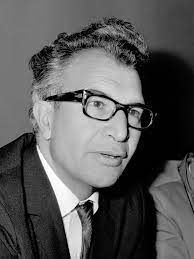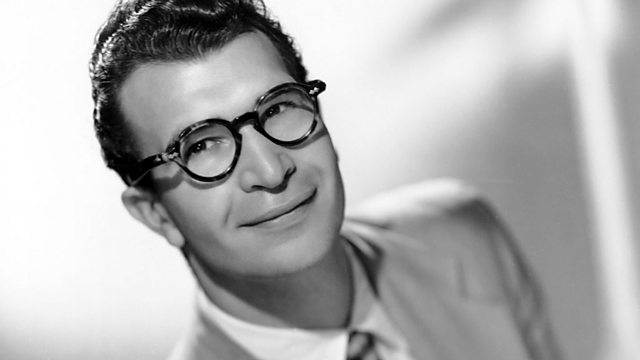The Life and Legacy of Dave Brubeck: A Jazz Pioneer Who Reshaped the Sound of America
Dave Brubeck was not just a jazz musician — he was a revolutionary force who expanded the boundaries of the genre with fearless innovation, global reach, and an enduring sense of rhythm. With a career that spanned over six decades, Brubeck became a household name through his iconic quartet, genre-defying compositions, and a deep commitment to musical exploration. This is the story of a pianist who brought complex time signatures into the mainstream and left a legacy that continues to inspire.

Early Life and Musical Roots
David Warren Brubeck was born on December 6, 1920, in Concord, California, into a family where music and the American frontier spirit coexisted. His father was a cattle rancher, while his mother was a classically trained pianist who introduced her son to the instrument. Although Brubeck initially studied veterinary science, music ultimately claimed his heart. He switched majors at the College of the Pacific in Stockton, California, where he studied music under the tutelage of classical composer Darius Milhaud, who encouraged his interest in jazz and composition.
A New Voice in Postwar Jazz
After serving in the U.S. Army during World War II—where he entertained troops with his integrated band—Brubeck formed the Dave Brubeck Octet, one of the first groups to experiment with polytonality and complex harmonies in jazz. But it was in the 1950s, with the formation of the Dave Brubeck Quartet, that his signature sound began to take shape.
The classic lineup featured:
- Dave Brubeck on piano
- Paul Desmond on alto saxophone
- Eugene Wright on bass
- Joe Morello on drums
This quartet would go on to redefine jazz in the 1950s and 60s.
“Time Out” and Global Fame
Brubeck’s groundbreaking 1959 album “Time Out” remains one of the most iconic jazz albums of all time. It defied industry norms by featuring original compositions in unusual time signatures—a stark departure from the standard 4/4 swing. Tracks like:
- “Take Five” (in 5/4 time, written by Paul Desmond)
- “Blue Rondo à la Turk” (in 9/8, inspired by Turkish rhythms)
- “Three to Get Ready” (alternating between 3/4 and 4/4)
…showcased Brubeck’s interest in fusing jazz with international rhythms and classical structure.
“Take Five” became the first jazz single to sell over a million copies, turning the Dave Brubeck Quartet into a commercial and critical sensation.
Cultural Impact and Civil Rights
Dave Brubeck was also a vocal advocate for civil rights. He refused to play in segregated venues during tours of the American South and insisted on maintaining an integrated band, even at the cost of losing gigs. His integrity and activism were subtle yet profound, and his efforts helped push jazz toward greater inclusion and equality.
He also collaborated with his wife, Iola Brubeck, on socially conscious works like The Real Ambassadors, a jazz musical that addressed Cold War politics and racism. This 1962 collaboration featured Louis Armstrong and remains one of jazz’s most thoughtful political statements.
Beyond the Quartet: A Composer of Ambition
While best known for his work with the quartet, Brubeck was also a prolific composer who wrote oratorios, cantatas, ballets, and classical pieces. Works like:
- The Light in the Wilderness (1968)
- To Hope! A Celebration (1980)
- La Fiesta de la Posada (1975)
…reflect his deep spiritual beliefs and his desire to bridge jazz with sacred and classical traditions. He frequently performed with orchestras and continued composing into his later years.
Later Years and Honors
Even into his 80s, Brubeck continued touring and composing. His dedication to music earned him numerous accolades, including:
- National Medal of Arts (1994)
- Kennedy Center Honors (2009)
- Grammy Lifetime Achievement Award (1996)
- Induction into the DownBeat Jazz Hall of Fame
In 2006, he was featured on the cover of Time magazine, a rare honor for a jazz musician—further confirming his cultural significance.
Death and Legacy
Dave Brubeck passed away on December 5, 2012, just one day shy of his 92nd birthday. He left behind a towering legacy that reshaped how jazz could sound, feel, and move. His ability to challenge norms while making music accessible to millions made him a rare artist—one whose innovations never alienated but instead invited listeners into new rhythmic worlds.
Conclusion: Brubeck’s Enduring Influence
Dave Brubeck didn’t just play jazz — he reimagined its possibilities. His music is taught in conservatories, played in jazz clubs, and remembered by fans across generations. By combining intellectual rigor with deep musical soul, Brubeck made jazz both a personal statement and a universal language.
Whether it’s the hypnotic beat of “Take Five” or the spiritual sweep of his larger compositions, Brubeck’s work continues to inspire musicians and listeners alike. He remains a timeless figure whose rhythms still resonate with the pulse of possibility.

Comments are closed